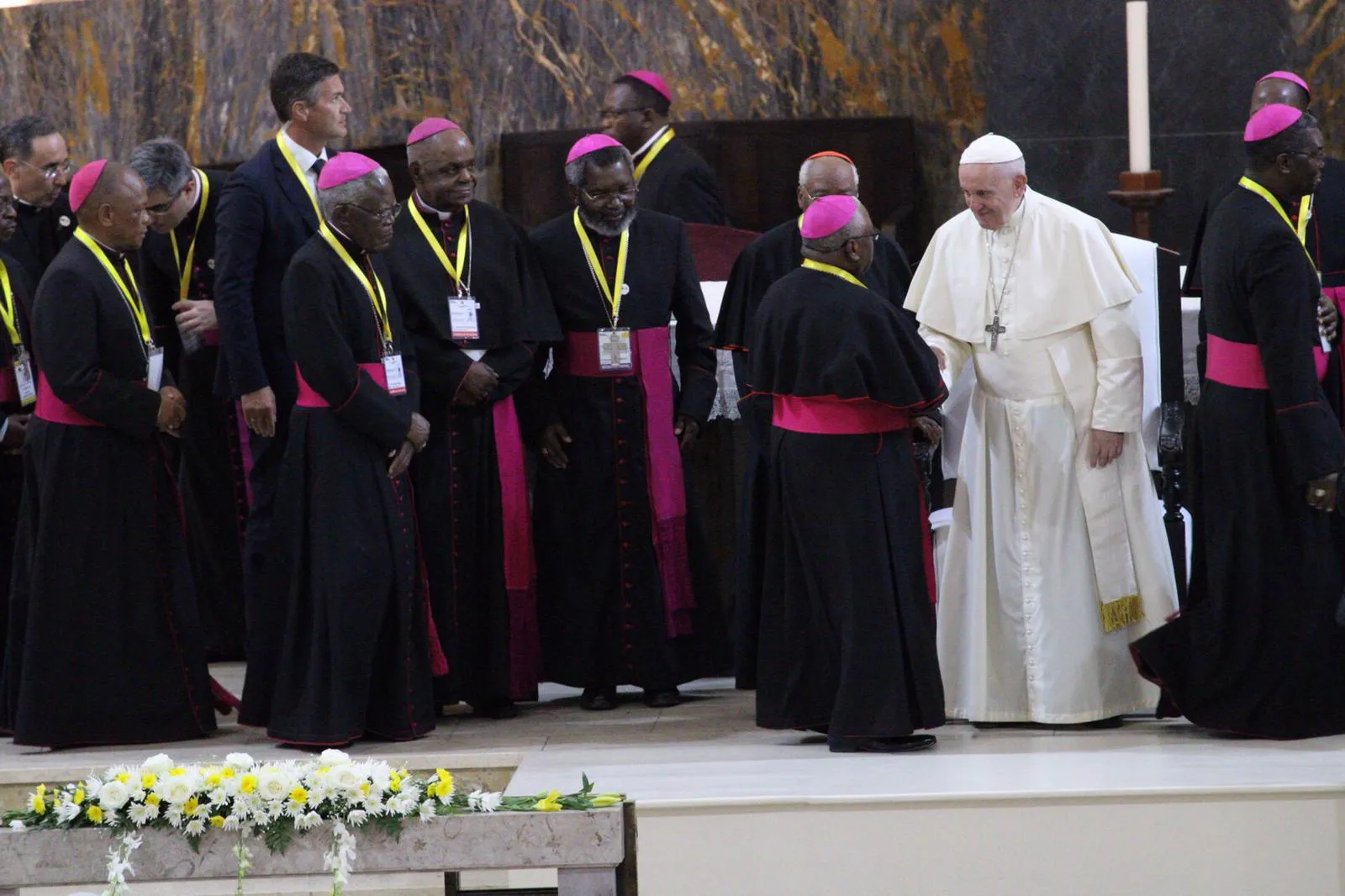“The priest is the poorest of men unless Jesus enriches him by his poverty, the most useless of servants unless Jesus calls him his friend, the most ignorant of men unless Jesus patiently teaches him as he did Peter, the frailest of Christians unless the Good Shepherd strengthens him in the midst of the flock,” Francis said.
He drew a contrast between Mary and Zechariah, who, when he was told his wife Elizabeth would bear a son, “could not overcome his desire to control everything.” Instead Mary, “surrendered herself; she trusted.”
The weariness of a priest should not be from expending energy measuring one’s work against one’s “due” from God, he argued, but should be related to the “ability to show compassion.”
“We are to rejoice with couples who marry; we are to laugh with the children brought to the baptismal font; we are to accompany young fiancés and families; we are to suffer with those who receive the anointing of the sick in their hospital beds; we are to mourn with those burying a loved one,” he urged.
“Take this, eat this…” he said. “These are the words the priest of Jesus whispers repeatedly while caring for his faithful people: Take this, eat this; take this, drink this… In this way our priestly life is given over in service, in closeness to the People of God… and this always leaves us weary.”
(Story continues below)
The pope said he hopes young people will find in their priests an example of how to follow Jesus “radiant with the joy of a daily commitment, not imposed but fostered and chosen in silence and prayer.”
He also encouraged Mozambican women to live out their baptismal call to evangelize.
Pope Francis quoted a catechist, who had spoken earlier in the meeting and said: “‘We are a Church that is part of a heroic people’ that has experienced suffering yet keeps hope alive.”
“With this holy pride that you take in your people, a pride that invites a renewal of faith and hope, all of us want to renew our ‘yes,’” he said. “How happy is Holy Mother Church to hear you manifest your love for the Lord and for the mission that he has given you!”
At the end of the meeting, Pope Francis said a prayer for vocations and led the Our Father before giving his apostolic blessing.
His next stop will be to make a private visit to the Matthew 25 House, a charity run by the local Catholic church with the apostolic nunciature and about 20 religious congregations. It provides warm food and hygienic and health services to street children and youth.
Hannah Brockhaus is Catholic News Agency's senior Rome correspondent. She grew up in Omaha, Nebraska, and has a degree in English from Truman State University in Missouri.








